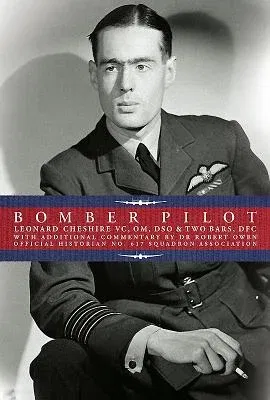Leonard Cheshire was one of the most highly decorated pilots of the
Second World War. As the Royal Air Force's youngest Group Captain in
1943, he took a drop in rank and went on to command No. 617 Squadron and
pioneer low level marking and precision bombing. For this, together with
four years of fighting against the bitterest opposition during which he
maintained a record of outstanding personal achievement, he was awarded
the Victoria Cross. In 1945 he was an official observer of the dropping
of the second atomic bomb on Nagasaki. Postwar, his humanitarian work on
behalf of the disabled resulted in the establishment of the Leonard
Cheshire Foundation (now known as Leonard Cheshire), the world's leading
disability care charity.
First published in 1943, Bomber Pilot is Leonard Cheshire's
contemporary account of his experiences during his first three years
with Bomber Command. His light style captures the exuberance of youth,
yet also brings out the growing realization of the responsibilities and
dangers facing the young aircrew of Bomber Command. He describes his
experience of operating Whitleys with No. 102 Squadron, first as a
novice co-pilot and later as captain with his own crew, providing a
vivid description of the action for which he was awarded his first DSO.
Following a brief interlude in North America he returned to join No. 35
Squadron as it introduced the Halifax into service before moving on to
command No. 76 Squadron.
In this new edition, Leonard Cheshire's original text is supplemented
with an additional commentary by Dr Robert Owen, aviation historian and
Official Historian of No. 617 Squadron Association. Providing additional
details of the events described by Cheshire, this commentary places them
in the broader context of the Bomber Offensive and includes a full
record of Leonard Cheshire's operations and wartime awards.

